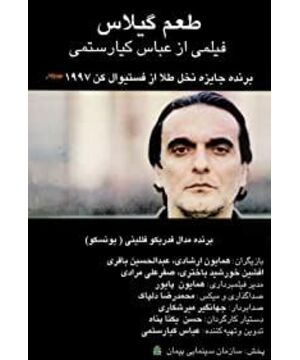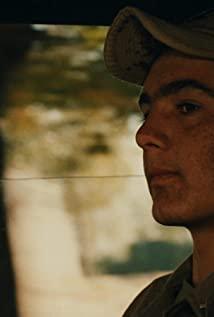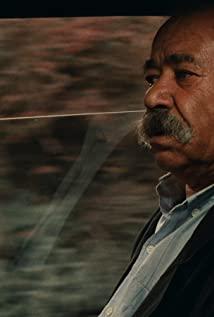Before writing the first word related to the film, we need to ask ourselves why Godard said that "the film ends with Abbas". Thinking about this issue affects the perception of the film to some extent. judge. It must be admitted that if you look directly at the text of the movie, or write it into a novel without changing a word, the novel version may inevitably fall to the point where it is impossible to avoid. But it's not a story, it's a movie, we often confuse the two, but the masters of the film are always unavoidable to show the difference between the two. The script is just a bunch of vague sentences. It clearly tells a story with a plot, but it lacks the essential expression. The movie is to the script what the chick is to the egg, peeling off the hard shell to reveal the fresh life. This kind of biological life, chicks have, roosters and hens also have, not to mention more active people. Because of this, this kind of activity endows not only physical life, but also a kind of spiritual survival. Camus said that human suicide comes from discovering the absurdity of everyday life. When facing this "big boulder" that is constantly rolling from top to bottom, before the body withers, the spirit has already died. The end of the insensibility - the subject for the sensible is dead. So far, why would anyone talk about the method of self-termination without shyness, without mentioning the reasons for it? As for the direct depiction of the walking dead, it is still caught between it and the pathological living of some kind of "fetish" split.
Slightly clumsily blowing the dust off the movie, let's take a look at what the movie is about. The meaning of life is constantly manifested in it. This manifestation is by no means an iceberg that rises as the timeline stretches, but starts from the beginning and continues, like a ghost, throughout the film. No text other than a cleverly conceived suspense novel can follow such a "ghost" narrative. But even the most well-crafted novel has no tolerance for this specter—the playful smile of a child, the swarming peasants, the taste of cherries, the group photo of others, and the lush green of the mountains.
There is no need to repeat the plot in the middle. For the ending, there is an undisguised process of separation, or, more importantly, than the ending, Abbas hopes that the audience can realize their existence as an individual at the end, and the individual is unavoidable. To face the proposition of life and how to solve the proposition, the director only gave the process and some open reference answers.
View more about Taste of Cherry reviews











